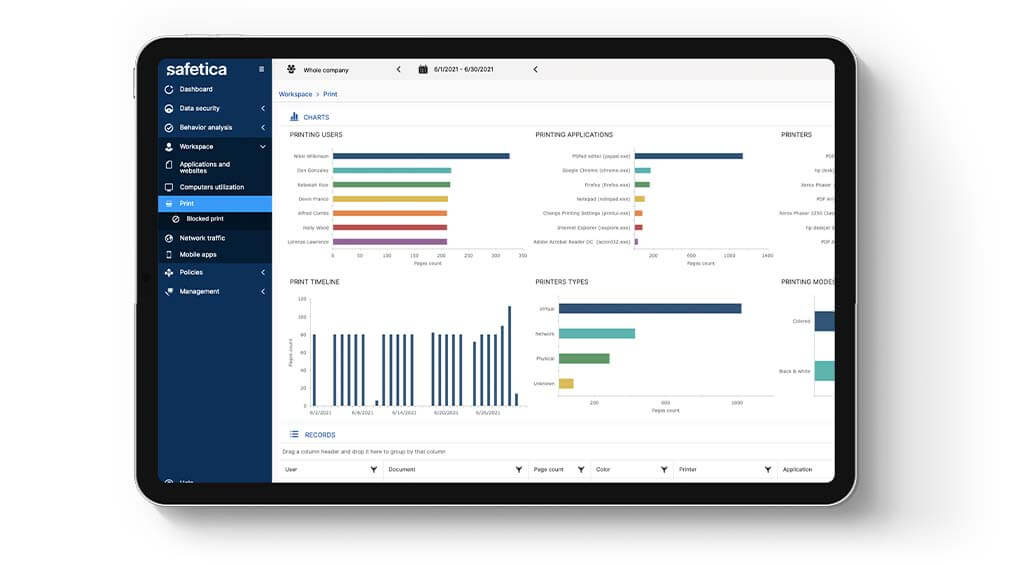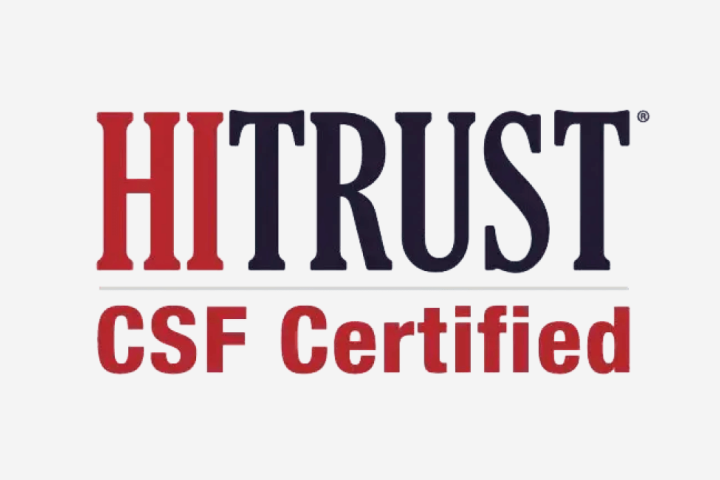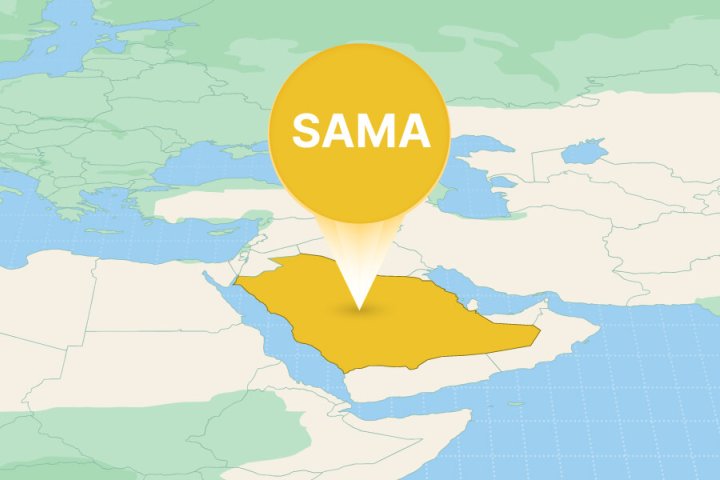For Canadian organizations, PIPEDA, which came into effect on 13 April 2000, has long been the guiding light for protecting personal information. This robust legislation sets the ground rules for how businesses handle personal data in their commercial activities.
In this article, we’ll help you understand PIPEDA’s purpose and implications, who the law applies to (that one’s quite the headache to work out!), its 10 fair information principles, and what steps organizations can take to comply.
What is PIPEDA?
PIPEDA serves as Canada’s fundamental framework for privacy protection, ensuring personal information remains just that – personal. PIPEDA’s full name, the Personal Information Protection and Electronic Documents Act, hints at its importance.
In a nutshell, PIPEDA regulates how businesses collect, use, and disclose personal information within the context of their commercial operations. It gives individuals specific (and quite extensive) rights over how their data is handled by private organizations, including transparency, consent, and data security. These rights are set out in the 10 fair information principles of PIPEDA. We will elaborate on those later in the article.
But before we move on, let’s pause and explain PIPEDA’s key terms.

"Personal information" is very broad under PIPEDA and means any data that relates to an identifiable individual. This includes obvious identifiers such as name, age, ID numbers, financial records, and medical records, but also less obvious information like opinions, evaluations, comments, or social status. If an individual can be identified using the information (alone or together with other information), it is considered personal information.

"Commercial activities" under PIPEDA also casts a wide net and means any transaction or act of a commercial nature. These activities aren't limited to just buying and selling goods; they extend to bartering and services, from banking to healthcare and everything in between. And even though PIPEDA is meant mainly for private-sector for-profit organizations, there are many nuances that could catch a non-profit that conducts certain activities into the loop as well.
For example: An organization that offers free services may still be engaged in commercial activities depending on the specifics of its business model.
The scope of PIPEDA: Who does it apply to?
PIPEDA applies to businesses and organizations engaged in commercial activities, which means most private-sector companies in Canada. If that sounds a little wishy washy, you’re right – there are many exemptions to PIPEDA that sometimes make it hard to determine if it applies or not. In general, it doesn't matter if you're a big corporation or a small local business – if you handle personal information as part of your operations, PIPEDA likely applies.
Now, here's the catch. It’s all about commercial activities, and those can also be conducted by non-profit organizations. If your organization collects, uses, or shares personal information as part of its business dealings, then PIPEDA steps in, even if you’re a non-profit (most of the time).
Another big consideration that could change PIPEDA’s impact on your organization? Remember that Canada isn't just one big privacy jurisdiction. Some provinces, like Alberta, British Columbia, and Quebec, have their own privacy laws that match up closely with PIPEDA. If your organization falls under one of these provincial laws, you are exempt from PIPEDA. However, this exemption typically applies only to personal information collected, used, or disclosed within the province.
That said, if your business operates within Canada but your data flows beyond provincial or national borders, PIPEDA is always going to be your guiding regulation; it doesn't matter which province you're based in.
To make things extra complicated, it is possible that more than one privacy law applies to one organization. A provincial privacy regulation could apply to personal information that the organization collects within the province, while another part of its data processing that includes disclosure across provincial borders may be subject to PIPEDA.
Federally regulated organizations fall under PIPEDA automatically. These include:
- airports and airlines
- banks
- inter-provincial or international transportation companies
- telecommunications companies
- offshore drilling operations
- radio and television broadcasters
PIPEDA doesn't cover personal information handled by the federal government, as they have their own rules under the Privacy Act. Provincial and territorial governments and their agents also have their privacy laws. So, PIPEDA steps aside in these cases.
Some other exemptions to PIPEDA include:
Employee information: If you're just collecting business contact info, like your colleague's name, job title, and office number, for work purposes, PIPEDA usually doesn't come into play.
Journalism: PIPEDA respects freedom of expression. If your organization is gathering personal information purely for journalistic, artistic, or literary pursuits, you're probably not in PIPEDA's territory.
When you finally determine if your organization falls under PIPEDA or not (good luck!), you may want a better understanding of what the regulation’s intentions are. Knowing the reasoning behind it may make complying easier. Let’s take a look:
What's the purpose of PIPEDA?
PIPEDA's purpose is clear – to protect personal information and maintain trust in the digital age so that businesses and organizations can flourish.
At its core, PIPEDA is a delicate balance between protecting individuals' privacy rights and allowing organizations to use personal information for legitimate purposes. It's not about stopping data collection; it's about ensuring that it's done responsibly and with consent.
The 5-Year checkup: PIPEDA isn't set in stone and is designed to adapt to the evolving digital landscape. That's why it undergoes a review every five years. This regular checkup ensures that the rules stay relevant and effective.

Introduction to PIPEDA's 10 Fair Information Principles
PIPEDA uses ten fundamental principles to guide just how organizations are supposed to handle personal information to keep it private and maintain consumers’ trust. From accountability to individual rights, let's now explore PIPEDA's 10 fair information principles and understand how they ensure that personal data is treated with the utmost care and respect.
![]()
Accountability
Organizations are responsible for the personal information they collect and control. It must designate someone responsible for ensuring compliance with PIPEDA’s principles.
![]()
Identifying purposes
Organizations must clarify why they're collecting personal information, either before or when they gather it.
![]()
Consent
Before collecting, using, or disclosing personal information, organizations must inform the individual and obtain their consent.
![]()
Limiting collection
Organizations can only collect personal information necessary for the identified purposes. Collection methods must be fair and lawful.
![]()
Limiting use, disclosure, and retention
Personal information can only be used or disclosed for the purposes it was collected unless an individual consents or the law requires it. It must only be retained as long as necessary for those purposes.
![]()
Accuracy
Personal information has to be kept accurate, complete, and up-to-date to serve its intended purpose.
![]()
Safeguards
Organizations have to protect personal information using security measures based on its sensitivity.
![]()
Openness
Organizations have to make their policies and practices regarding personal information management publicly available.
![]()
Individual access
Individuals have the right to know (and can request information about) if their personal information is being used and disclosed and to access it. They can challenge its accuracy and completeness and request amendments as needed.

Challenging compliance
Individuals have the right to challenge an organization's compliance with these principles.
4 steps to PIPEDA compliance
Understanding the principles of PIPEDA is vital, but translating them into practical actions is where true compliance begins. Here are steps that your organization can take to start its journey to PIPEDA compliance:

1. Assessment and gap analysis: Start by conducting a comprehensive assessment of your current data handling practices. This step identifies existing strengths and weaknesses in your data management. To simplify this process, consider using the Privacy Commissioner's self-assessment tool.

2. Interpretation and action: After the assessment, interpret the results to gain a clear picture of where improvements are needed. Create a strategic action plan to enhance your personal information management practices, filling the gaps identified in the assessment. If you need help with your information security management system, you can also take a look at the international standard ISO 27001 for guidance.

3. Implementing privacy controls: Identify various privacy controls encompassing policies, systems, procedures, and access controls that must be developed and integrated into your organization. These controls help ensure that personal information is handled securely and in compliance with PIPEDA. Remember to educate your employees about data security and PIPEDA compliance and consider utilizing the Zero Trust Approach to data access to protect the data that you control.

4. Regular reassessment: As these controls become operational, monitor and assess their effectiveness. Remember, as the digital landscape evolves (and hackers become more competent), regular reviews of your data loss protection practices are crucial. Adjust security policies and practices to adapt to evolving threats and technologies.
PIPEDA complaints and penalties
The Office of the Privacy Commissioner of Canada (OPC) is an independent authority responsible for enforcing privacy rights in Canada and, as such, deals with PIPEDA compliance as well. The OPC accepts complaints, provides guidance, conducts investigations, and offers resources to help organizations adhere to PIPEDA.
OPC can initiate complaints on its own or respond to complaints filed by individuals. Complaints can relate to anything from unauthorized data collection and inadequate safeguards to failure to respond to consumer access requests. The OPC investigates these complaints, attempting to mediate and reach a resolution between the complainant and the organization. If a resolution cannot be reached, the OPC can issue formal findings and recommendations, usually resulting in legal proceedings.
While PIPEDA doesn’t provide for fines in the same way as some other data protection laws, non-compliance can still have serious consequences. In cases where an organization does not comply with the OPC's recommendations, a lawsuit can be filed with the Federal Court of Canada. The court has the authority to issue orders requiring the organization to take specific actions that can result in court-imposed penalties.
It's important to note that reputational damage and loss of customer trust can be significant consequences of privacy breaches and can lead to stark financial loss even without monetary penalties. It is in the best interest of organizations to take their PIPEDA obligations seriously and make sure they are (and continue to be) in compliance.

How Safetica can help your organization with PIPEDA compliance
Safetica can assist you in securing personal information and implementing data protection measures, reducing the risk of privacy-related complaints. Our comprehensive Data Loss Prevention (DLP) software is designed to assist businesses in meeting their data protection obligations and, most of all, keep their customers’ personal data safe.
Here's how Safetica can be your ally in achieving compliance:
Tailored solutions: Safetica offers tailored solutions that can be adapted to your organization's specific needs. We understand that each business has unique data protection requirements, and our software can be customized accordingly.
Data analysis and protection: Get real-time alerts that help in detecting potential data breaches and responding promptly to incidents. Our software helps identify and prevent unauthorized access or data breaches, aligning with the principles of data protection under PIPEDA.
Prevent data leaks: Effectively protect sensitive information with data encryption and access controls.
As Canada's data privacy landscape evolves, now is the time to prepare. Don't wait until new regulations come into effect – take proactive steps to safeguard your data and protect your customers' privacy, and not just for the sake of PIPEDA. It's time to fortify your defenses and keep everyone’s data safe!
Next articles

HITRUST framework: The Scope, Purpose, and How to Comply
This article will guide you through HITRUST's evolution, its current scope, and how it can be a game-changer for your organization's data protection strategy.


